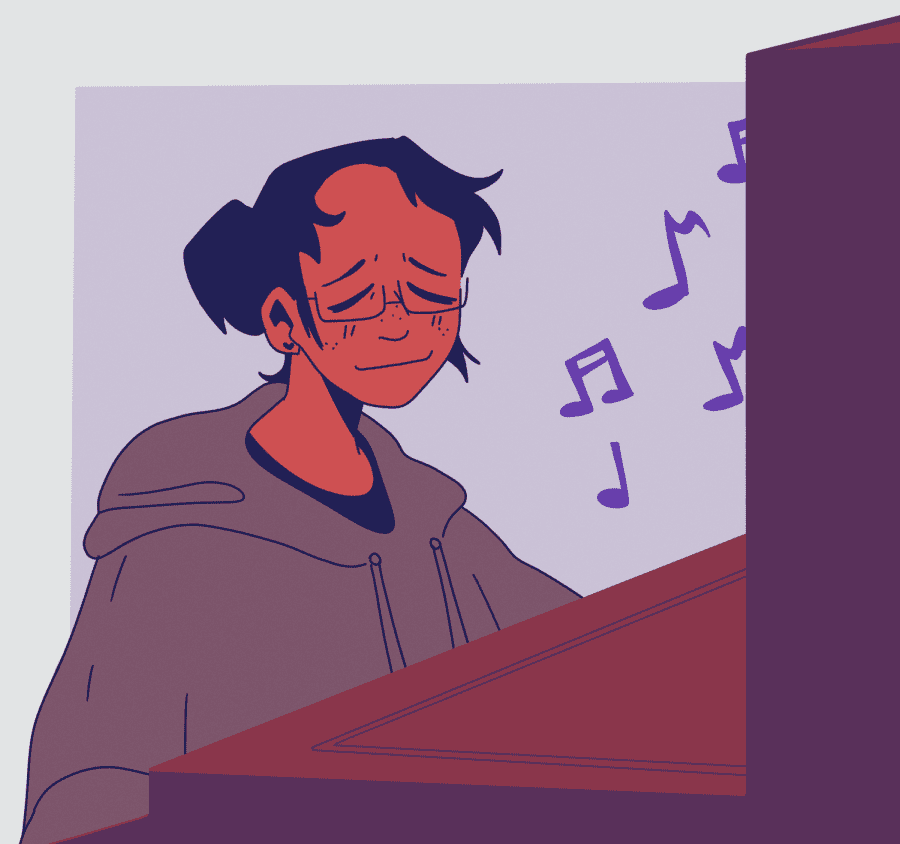Opinion | Development of musical skills yields lifelong benefits
July 25, 2022
When people think about piano savants, they tend to imagine a six-year-old practicing their trills and cadences over and over for hours. As the film “Whiplash” demonstrates, perhaps the only way to become one of “the greats” is by ruthless self-sacrifice and unhealthy amounts of repetition. But more times than not, that avenue quickly leads to burnout and disillusionment.
Learning an instrument doesn’t have to be that tedious. For many musical hobbyists, their relationship with their instrument is complicated, and there will be periods when they don’t interact at all.
Playing an instrument, an often frustrating journey, is well worth the effort expended. The fundamentals are the most difficult part. Once you begin to feel semi-competent, your interest in playing grows exponentially. Of course, there are some with natural talent and better congenital advantages, like the “perfect pitch,” but truthfully, anyone can become skilled at an instrument with enough dedication and practice.
Studies show that the unique cerebral benefits of playing an instrument differ from any other sport, activity or type of art. There is nothing quite as engaging as playing an instrument.
Playing musical instruments works both the right and left hemispheres of the brain, making it an incredibly stimulating workout for the brain. For this reason, musicians often have an enlarged corpus callosum — the bridge that connects the two hemispheres.
Get The Daily Illini in your inbox!
Furthermore, it interfaces with nearly every part of the brain simultaneously, including the visual, auditory and motor cortices. Because of these amplified communication channels in the brain, musicians also often demonstrate a higher efficiency at problem solving.
Musical talent engenders enhanced memory, coordination, concentration, creativity, discipline, listening and if one plays in a band, a number of social skills as well.
Additionally, the body and brain are physically changed in beneficial ways by repeated music practice. As just one example, musicians have higher amounts of grey matter and neuroplasticity in the brain.
According to TED, “musicians often have higher levels of executive function, a category of interlinked tasks that includes planning, strategizing and attention to detail and requires simultaneous analysis of both cognitive and emotional aspects.” This growth of various cognitive abilities naturally extends to all sorts of daily tasks outside of music practice.
And piano specifically has some unique benefits compared to other instruments, given the ambidexterity needed to play. Moreover, some level of piano proficiency is generally required for musicians of other instruments to better understand music theory concepts, given the impressive range and diversity of the instrument.
Then, there are the skills honed by learning music theory. Music theory is incredibly technical and difficult, yet rewarding, and it is underrespected as a field of study. One unlocks a whole new language by being able to interpret sheet music and understand the fundamentals of chords.
Although I have flirted with a number of instruments in the past, my passion has always lied with the piano. Reading two bars and using both hands can seem daunting, but the rush of energy as you capitulate to your impressively potent muscle memory is invigorating.
The piano has dramatically helped soothe my anxiety and manage depressive episodes. There are days when one’s ability and focus are inexplicably better than on other days, but I always feel the most passion when I most need the therapeutic effects of the piano.
Technically, I have been a pianist for well over a decade. But I seldom played consistently. I feel most inspired to play when I find music I am excited about, so prospective pianists should avoid the beaten path of recommended classical music books and tiresome exercises and instead trailblaze by finding arrangements for the music you would like to learn and play, at the appropriate skill level.
That’s not to say that exercise books like Hanon or Czerny aren’t helpful — quite the contrary. But a musician will only be successful when they find their own drive to improve with skill books like those.
Personally, I separate my repertoire into six categories: classical, holiday, modern (pop), soundtrack, nostalgia (classic rock) and jazz.
Furthermore, there are always new developments that are making music less exclusive. In the internet age, creative arrangements of sheet music are becoming increasingly accessible and plentiful. Aside from public instruments and stores, used or second-hand instruments can be found.
The piano isn’t the most convenient or the most portable, though a decent keyboard with a mute pedal or headphones is still a great setup for an urban apartment.
Beethoven once said, “To play a wrong note is insignificant, but to play without passion is unforgivable.” Instruments require patience, but above all, they require emotional spirit, which often feels cathartic to express. Playing an instrument is impressive, healthy, stimulating and fun.
It’s never too little or too late. Turn this knowledge into enthusiasm and go practice a musical instrument today — might I recommend the piano?
Andrew is a senior in LAS.







